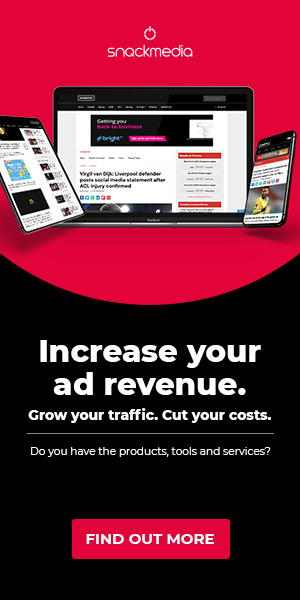Man United and Twitter update their relationship status
The headlines read ‘Paul Pogba becomes the first player to have his own Twitter emoji’. That was Friday afternoon, when the news broke, and indeed on Saturday morning, in the buildup to a football match of huge emotional and regional significance: the Northwest derby. Manchester United v Liverpool.
On Monday morning, a day after the game, contrasting – though no less obvious – headlines hit the internet. They all had to do with Pogba’s poor performance, and referenced the pressure heaped onto him by the social media hype in the days before the game.
There was a prevailing sense that he’d been set up for a fall, and that although the hype had been massive, the club were probably partly to blame for allowing a media circus to follow a young footballer on the eve of a big game.
It wasn’t just the hype, though.
Although Twitter has become really very important to football, especially for fans and journalists, there is still something very strange about its move from the periphery to the centre. #Pogba adorned the touchlines as the real life version played for a huge club in a huge game in front of a huge worldwide audience – that was more than a little strange.
To see Pogba flounder on the pitch whilst his emojified head danced around it provided one of the most jarring visuals you’re likely to see when watching a football match. Was this player even good enough to warrant a place on the pitch, let alone his own hashtag?
The initial reaction of onlookers to rush into excitement and hype upon seeing a Pogba emoji show up when they typed #Pogba is understandable. Pogba is the world’s most expensive footballer, and Twitter is how fans react to games. We’re in a situation where what fans say on Twitter has become news: the ‘Twitter Reacts’ phenomenon. So you can see why people were excited; kids with a new toy. But that reaction gets the situation backwards.
Twitter has ridden a wave on the back of the celebrities who use the platform. Without them, and the interest they generate from the masses, you could plausibly argue that Twitter would be nowhere. Facebook has always been the platform for a richer communication and interaction with friends and acquaintances, while Twitter is for real time interaction with the world around you. The closeness you feel to others using the medium is part of the charm. So the fact you can get that close to celebrities and people you would never otherwise meet is a big draw.
But somewhere along the line, though, that seems to have become tangled, and the distinction became blurred. Somehow now, being a celebrity on social media is essentially one and the same thing as being a celebrity full stop. It seems that if you want to be a successful athlete, you need to garner a following, allowing you to market yourself and attract brands to your sponsorship table.
#Pogba shouldn’t be seen as an advertisement for Pogba, though, but an advertisement for Twitter. Except, it’s been turned on its head. Twitter’s logo appears, but it’s Pogba’s face and name being shown. Where ads for Coca Cola and Heineken usually light up the playing surface, are we about to see ads for the actual players on the pitch? Brand Pogba, Brand Messi and Brand Ronaldo? How about Brand Barton? He’s big on Twitter, isn’t he?
So on one hand, you have a social media platform whose biggest draw is arguably the celebrity superstar it is trying to piggyback upon. But on the other hand, are we reaching the point where social media platforms have become so big that even global footballing superstars try to leverage Twitter to boost their own celebrity?
Well, perhaps not in Pogba’s case. It’s unclear at whose behest the emoji was created and who decided it was a good idea to plaster it on the advertising hoardings. Going forward, it wouldn’t be at all surprising if the people managing the image and brands of social media savvy footballers decided to broach the subject on behalf of their clients. Nor would it be surprising if Twitter was minded to tie itself to the most social media savvy footballers, especially given how millennials may be more inclined to switch to Snapchat or Instagram to follow Brand Pogba. And it certainly isn’t a stretch to suggest that football clubs themselves – especially big beasts like Manchester United whose social media reach is through the roof – would want to steer fans towards a place where their club excels (other than the actual pitch, of course).
Football, with its global appeal, is a perfect bedfellow for Twitter, while Twitter, with its ability to reach groups of people who wouldn’t traditionally be considered fertile ground for football clubs (millennials, women, audiences halfway around the world etc.), is the perfect bedfellow for football.
In the end, we all knew they were ‘a thing’. But it’s never official until you update the relationship status.
About author
You might also like
SPORTEL 2021: Day One Recap
This year’s prestigious SPORTEL convention kicked off in sunny Monaco today, welcoming a host of familiar faces as well as plenty of new ones. Doors opened at 8:30am with businesses
Six Founding Riders Set To Bring The Vision Of The UCI Track Champions League To Life
Olympic Champions, UCI World Champions and World Record holders join the new track cycling competition debuting in November 2021 The UCI Track Champions League is delighted to announce that six
Sports related spending to soar this summer as pre-pandemic life resumes
New insights from eBay Ads UK reveal the potential for brands to engage with an excited but nervous nation as sports events get back on track As pubs and indoor









